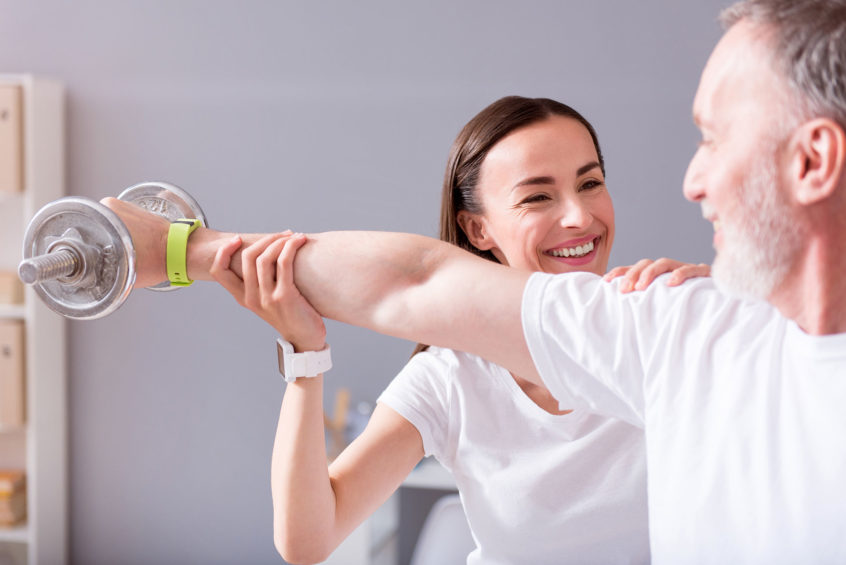How To Maintain Rehab Goals
Rehabilitation is often viewed as an action plan towards achieving a goal. People with Parkinson’s disease, multiple sclerosis, stroke and other neurological conditions know that physiotherapy can assist to achieve goals aimed at improving balance, strength, movement and fitness but what happens once the goal has been reached and therapy ends?
Consider any sports athlete who spends many hours training to achieve elite fitness. Once they stop training, their ability to perform at an elite level drops, unless they keep training. Although most of us are not elite athletes, for our bodies to stay strong, balanced and fit we need to keep training too. The same applies to people with neurological conditions such as stroke, Parkinson’s disease and multiple sclerosis. The body needs to be used and challenged on an ongoing basis for muscles to stay strong, balance systems to remain responsive, joints to stay mobile, the heart and lungs to stay fit and for neuroplasticity to be optimised. The key to maintaining hard earned rehabilitation achievements is to stay active. But how?
FOCUS – FUN - FEEL GOOD – FRIENDS - FUNCTION
FOCUS: Be clear on what your long-term goal is. Write it down. Share it with friends and family. This goal will provide FOCUS and motivation.
FUN: Make your training/exercise/activity FUN. Have your favourite music. Go outdoors. Consider classes. Rekindle past interests such as dancing, gym, yoga, bush walking etc. If you enjoy it, you’ll want to do it.
FEEL GOOD: This is the ‘just right’ challenge. When an activity is too easy it can become boring. If a task is too difficult it can be deflating. When you have something that you CAN DO and it feels as though it makes your body work, you can feel empowered. And when it feels good, you’ll keep going back for more!
FRIENDS: You could ask a friend you join you or perhaps join a group or class. Social connection and commitment will bolster your participation (and add fun). If you prefer to work alone, you could consider sharing your experience on-line to help others. Perhaps write your own blog, set up a Facebook page or join an on-line support network such as Enable me for stroke survivors.
FUNCTION: For benefits and improvements gained from rehabilitation to be maintained they need to be part of your everyday. Staying active and mobile across the day and week according to your ability will mean that you are using the new strength/balance/movement gains. Making use of the newly trained systems will maintain them. For physical activity to become a long-term habit, just like all behaviour change, the change towards lifelong activity will happen in a series of small steps (most forward but some backward). Family and friends can provide moral support as well as physical support in terms of transport or a training buddy.
Consider what might work for you. If you want to try your local leisure centre or gym, most neurological physiotherapists could assist you with the transition. Contact local organisations such as Parkinson’s WA, MSWA, Australian Stroke Foundation, ECU Vario Clinic to investigate various exercise options.

